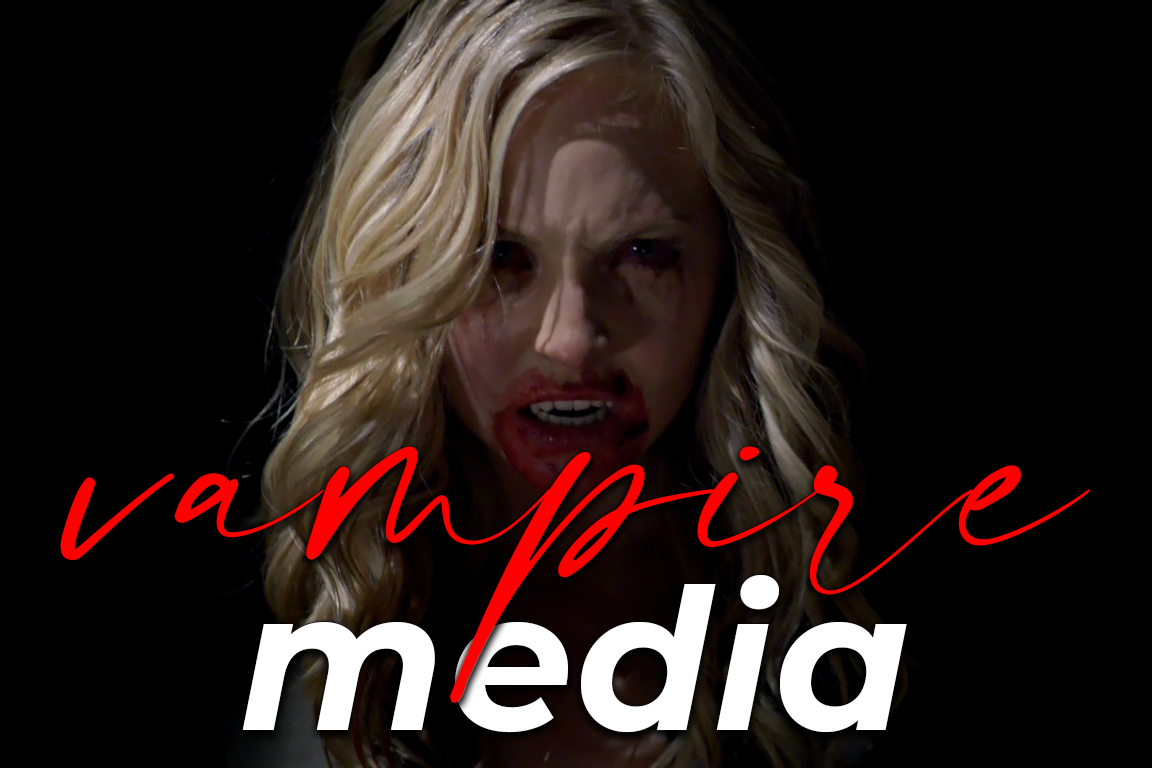New Community for Vampire Fans
Aug. 23rd, 2025 08:47 am
Description:

This week! Books!
This month is racing by, and it’s almost time for our next First Thursday Office Hours. Join me on September 4 at 9pm ET / 6pm PT and ask me anything! Exclusively for newsletter subscribers.
Anthropic AI Class Action: Important Information for Authors – Authors Guild – Very important for authors whose books may have been pirated by Anthropic. Make sure to register with the court-appointed class counsel to receive more information about the class action lawsuit that could result in billions of damages.
Sally Rooney could be arrested under Terrorism Act after pledging royalties to Palestine Action – Ella Creamer, The Guardian – Sally Rooney, a real one, is risking arrest and censorship for continuing to donate royalties to Palestine Action, a group labeled a terrorist organization by the British government for spray painting two RDF airplanes.
Why Magic, Dragons and Explicit Sex Are in Bookstores Everywhere – Alexandra Alter, New York Times – A little over a decade after Fifty Shades of Grey went from Twilight fan-fiction to bestseller lists, a significant chunk of the current romantasy boom is being driven by Harry Potter fan-fiction.
Hugo, Lodestar, and Astounding Awards Winners – Locus Mag – Congrats to the winners of these prestigious awards for science fiction!
Google Launches Personalized Gemini Storybook App to Industry Concern – Joanne O’Sullivan, Publishers Weekly – Google launched Gemini storybook, which will churn out a picture book with narration based on simple prompts. I’ve tried it, and found the results to be a very-typically A.I. mix of “kind of amazing” and “deeply strange.” Industry groups are concerned at the lack of adequate guardrails for material intended to be consumed by children.
Chinese literature is tough to find in English. One editor hopes to change that – Andrew Limbong, NPR – The United States market is notoriously insular, and translated books can be a challenge. Chinese literature in particular is very difficult to find. Han Zhang at Riverhead is trying to change that.
You Met Grandma at a Keg Party? The Rich Order $100,000 Memoirs for Family Only. – Rachel Louise Ensign, Wall Street Journal – Ghostwritten memoirs are apparently the new must-have accessory for rich boomers.
New Video Game, ‘Tiny Bookshop,’ Has Booksellers Talking (and Playing) – Claire Kirch, Publishers Weekly – Ever dreamed of owning a bookstore but don’t want to lose all your money? There’s a new video game just for you.
What my health journey taught me about reaching readers – Dan Blank, The Creative Shift – After a recent health challenge, Dan Blank did what any creative person who wants to get something done must do: he made a plan to change and stuck to it.
This week in bestsellers
Here are the top five NY Times bestsellers in a few key categories. (All links are affiliate links):
Adult print and e-book fiction:
- We Are All Guilty Here by Karin Slaughter
- For Richer For Poorer by Danielle Steel
- Project Hail Mary by Andrew Weir
- Atmosphere by Taylor Jenkins Reid
- Accomplice to the Villain by Hannah Nicole Maehrer
Adult print and e-book nonfiction:
- The Body Keeps the Score by Bessel van der Kolk
- The Fort Bragg Cartel by Seth Harp
- Semi-Well-Adjusted Despite Everything by Alyson Stoner
- The Anxious Generation by Jonathan Haidt
- Cudi by Scott “Kid Cudi” Mescudi
Young adult hardcover:
- Hour of the Pumpkin Queen by Megan Shepherd
- A Theory of Dreaming by Ava Reid
- Glorious Rivals by Jennifer Lynn Barnes
- Immortal Consequences by I.V. Marie
- Nothing Like the Movies by Lynn Painter
Middle grade hardcover:
- Wonder by R.J. Palacio
- Refugee by Alan Gratz
- Impossible Creatures by Katherine Rundell
- The Complete Cookbook for Young Chefs by America’s Test Kitchen Kids
- Odder by Katherine Applegate
This week on the blog
In case you missed them, here are this week’s posts:
And keep up with the discussion in all the places!
- Follow me on Bluesky
- Check out the Bransforums
And finally:
Bulldozing Gaza – Adam Tooze, Chartbook – Historian Adam Tooze uses the horrific ongoing razing of Gaza to look at how the innocuous-seeming bulldozer is intimately bound up in western settler colonialism and warfare.
And on that note, have a great weekend!
Need help with your book? I’m available for manuscript edits, query critiques, and coaching!
For my best advice, check out my online classes, my guide to writing a novel and my guide to publishing a book.
And if you like this post: subscribe to my newsletter!
Photo: The Huntington, San Marino, CA. Follow me on Instagram!
![[community profile]](https://www.dreamwidth.org/img/silk/identity/community.png) thankfulthursday
thankfulthursday
Aug. 21st, 2025 05:52 am
· Photos are optional but encouraged.
· Check-ins remain open until the following week's post is shared.
· Do feel free to comment on others' check-ins but don't harsh anyone else's squee.
This week's check-in is open.
![[community profile]](https://www.dreamwidth.org/img/silk/identity/community.png) 1character: a character-focused fanfic writing community
1character: a character-focused fanfic writing community
Aug. 19th, 2025 05:31 am
Description: Pick one character as your focus in this fic writing community in the style of
Schedule: Ongoing
Links:
On Dreamwidth:
What I learned about creativity from Bob Ross
Aug. 19th, 2025 12:05 am
Alyce and I have been on a Bob Ross kick lately, and it’s the first time I’ve watched him since I was home sick from school in the 1990s, back when I had to diligently check PBS every half an hour to see if I was going to be lucky enough to catch an episode.
I’m pleased to report that The Joy of Painting is just as mesmerizing as ever, and now more readily available than ever on PBS, Hulu and Disney+, YouTube… you name it, for your binging or ASMR pleasure.
Now that I’m older… yeah, okay, these paintings probably won’t be hanging in the Met, but that’s not the point. It’s magic to watch a painting take shape in twenty-six minutes, and some of them are genuinely inspired.
Here are some things Bob Ross taught me, then and now, about the creative process.
Anyone can should do it
Elitist, Bob Ross was not.
His entire orientation is toward encouraging everyone to try painting for the first time, and demystifying that painting belongs solely to creative types. (It helps that he makes it look far easier than it really is).
You can paint. You can create. Better yet, you should create, and what’s stopping you? Every single episode was evangelism for jumping in and trying your hand at art.
In one episode, his team put together a touching collage of many of the photographs people had sent him (and back in those days that meant taking a photo, getting it developed, typing a letter, and mailing it), a testament to just how many people he inspired.
Bob Ross gave a lot of people permission to create, and changed lives in the process.
There are no mistakes
A perennial Bob Ross catchphrase is that “there are no mistakes, there are only happy accidents.”
As someone who was deathly paranoid about rewriting earlier in my career, which I mistakenly saw it as wasted time, I wish I had better internalized this advice. Because it’s very true.
Just as you can paint over a mistake, you can revise a book, and nothing is truly lost. Every “mistake” is a learning opportunity that pushes forward your craft, a pursuit that never has to end.
Don’t psych yourself out. Happy accidents.
Get crazy
Midway through an episode of The Joy of Painting, there’s invariably a moment when Ross chuckles and says, “let’s get crazy” or “let’s have some fun” and he proceeds to put a massive, ugly-at-first tree in front of a painstakingly crafted background.
He sometimes refers to these as “bravery tests,” and they genuinely feel like risks! Midway through nearly every episode, I have a moment where I’m like, “I don’t know about this…” but he almost always manages to make that moment of bravery work in the end.
If you want to push your craft forward, you can’t stay in a safe, pretty zone. You have to take some risks and push forward even if it might not work out. Those crazy moves can quickly be an inspired moment of magic.
Take pleasure in every step of the process
There are few things Ross liked more than wetting his brush in odorless paint thinner and smacking it quickly against the easel to dry it, or, in his parlance, “just beat the devil out of it.”
He gets giddy every single time. (Probably because he was also splattering the studio and crew).
Ross truly enjoyed every step of the process, even one that might strike someone else as a somewhat unpleasant chore.
I’m not someone who always thinks writing is fun, and I wish I had a bit more of Ross’s orientation. Maybe I should beat the devil out of the periods at the end of every sentence.
Creativity changes your orientation
In the last episode of the nineteenth season, Ross shared an anecdote of a woman who told him it wasn’t until she took up painting that she noticed a big old tree that she’d walked past every day without ever really seeing it.
What a perfect encapsulation of the creative process. We sometimes get so hung up on the products of the creative process. Whether our books will sell, whether galleries will want to hang our paintings. The goal is over the horizon instead of in the moment.
What we can easily lose sight of is the effect creativity has on us, even when we’re not creating. I believe very strongly that writing is important not just because of the books that result, but because of the effect writing has on writers.
And, in aggregate, it changes the world.
Ross had a profound effect on the creative lives of so many people, and until this past week I had no idea we lost him so young, at just 52.
Whether you’re going to paint happy little clouds or give a tree a friend in your writing, I think we could all do well to channel Bob Ross’s spirit.
Need help with your book? I’m available for manuscript edits, query critiques, and coaching!
For my best advice, check out my online classes, my guide to writing a novel and my guide to publishing a book.
And if you like this post: subscribe to my newsletter!
